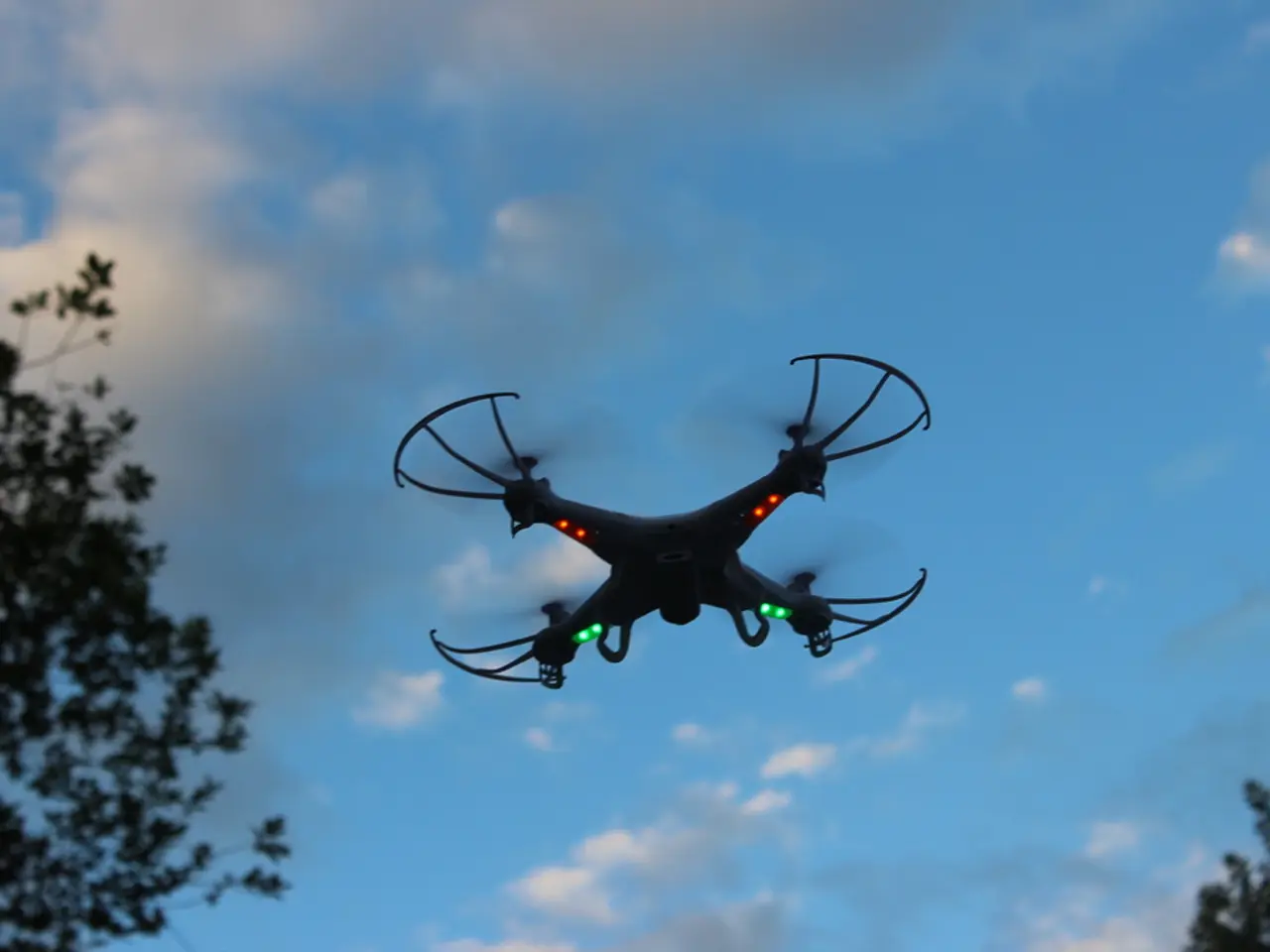Unmanned Aerial Vehicles Without GPS Navigation Systems and Their Significance Explained
In the realm of drone technology, a significant shift is underway as several companies are actively developing solutions for drone operations in GPS-denied environments. This focus on autonomy, AI, and advanced sensing technologies is set to revolutionise the industry, particularly for military and tactical applications.
One of the leading U.S.-based companies in this field is Shield AI. Specialising in autonomous military drones, their flagship drone, the Nova, is designed to navigate indoors, underground, and in combat zones. The Nova uses real-time 3D mapping and AI-powered flight to operate without relying on GPS signals, making it an invaluable asset in GPS-denied, communication-restricted environments. Shield AI also develops the Hivemind software for autonomous teaming of drones and aircraft.
Exyn Technologies is another company that focuses on autonomous mapping and operations specifically in GPS-denied zones. They provide drones with the capability to operate where GPS signals are unavailable, a feature that is increasingly important in various industries.
ZenaDrone has developed the IQ Nano, a tactical indoor drone engineered to work precisely in GPS-denied environments such as warehouses and military storage facilities. The IQ Nano features advanced AI for situational awareness and autonomy, targeting federal and military use.
Draganfly Inc. (DPRO), a Canadian innovator, produces modular drones that are deployed in U.S. military operations. Their systems support autonomous drone swarms with augmented reality control and threat assessment, designed specifically for challenging GPS-denied and urban combat scenarios.
The growing demand for GPS-denied drone operations stems from military operational needs, especially in conflicts that restrict GPS availability and require stealthy, resilient UAV capabilities. Some firms like Shield AI and Draganfly engage with U.S. Department of Defense contracts, underscoring their strategic role in this technology area.
In the civilian sector, the Federal Aviation Administration (FAA) requires the ability to navigate in the event of a GPS outage for drones to be incorporated into the National Airspace through UTM. The FAA eventually wants all drones to be able to fly without GPS, a fundamental requirement for their future considerations for incorporating drones into the National Airspace through UTM.
Companies working on GPS-denied drone capabilities continue to emerge, and the list of companies offering such technology is expected to grow in the coming years. For instance, NT Robotics has developed an Autonomous indoor navigation system that allows drones to perform technical inspections in GPS-free environments. Their unique indoor UAV control software includes precision positioning, fully covered surface flying algorithms, obstacle flying algorithms, an intelligent image stabilization system, and improved image quality in low light conditions.
Another notable player in this field is Emesent, whose Hovermap is a SLAM-based LiDAR mapping and autonomy payload that enables drones to map and explore GPS-denied environments autonomously. This technology is particularly useful in scenarios such as indoor inspections, mining, bridge inspections, critical infrastructure, search and rescue, and surveying disaster sites.
As these advancements continue, the future of drone technology looks promising, with increased autonomy, improved safety, and expanded capabilities in GPS-denied environments.
- The autonomous drone, Nova, developed by Shield AI, is designed to function without GPS signals, making it useful in GPS-denied environments.
- Exyn Technologies specializes in autonomous mapping and operations in GPS-denied zones, offering drones that can operate without relying on GPS signals.
- The IQ Nano drone by ZenaDrone targets federal and military use, featuring advanced AI for operation in GPS-denied environments such as warehouses and military storage facilities.
- Draganfly Inc.'s systems support autonomous drone swarms in challenging GPS-denied and urban combat scenarios, with applications in the military sector.
- The Federal Aviation Administration (FAA) requires the ability to navigate without GPS for drones to be incorporated into the National Airspace, a prerequisite for future drone operations in GPS-denied environments.
- NT Robotics has developed an Autonomous indoor navigation system, allowing drones to perform technical inspections in GPS-free environments.
- Emesent's Hovermap is a SLAM-based LiDAR mapping and autonomy payload that enables drones to autonomously map and explore GPS-denied environments.
- With increased autonomy and improved capabilities in GPS-denied environments, the future of the drone industry looks promising for careers and business opportunities in science, technology, education, and self-development, as well as the space and astronomy field.
- The advancements in GPS-denied drone technology lead to increased safety, expanded capabilities, and potential applications in various industries, including environmental science, finance, and manufacturing.
- As more companies delve into the development of GPS-denied drone technology, the industry is set to undergo significant growth and transformation in the coming years, driving innovation in gadgets, AI, and sensing technologies.




